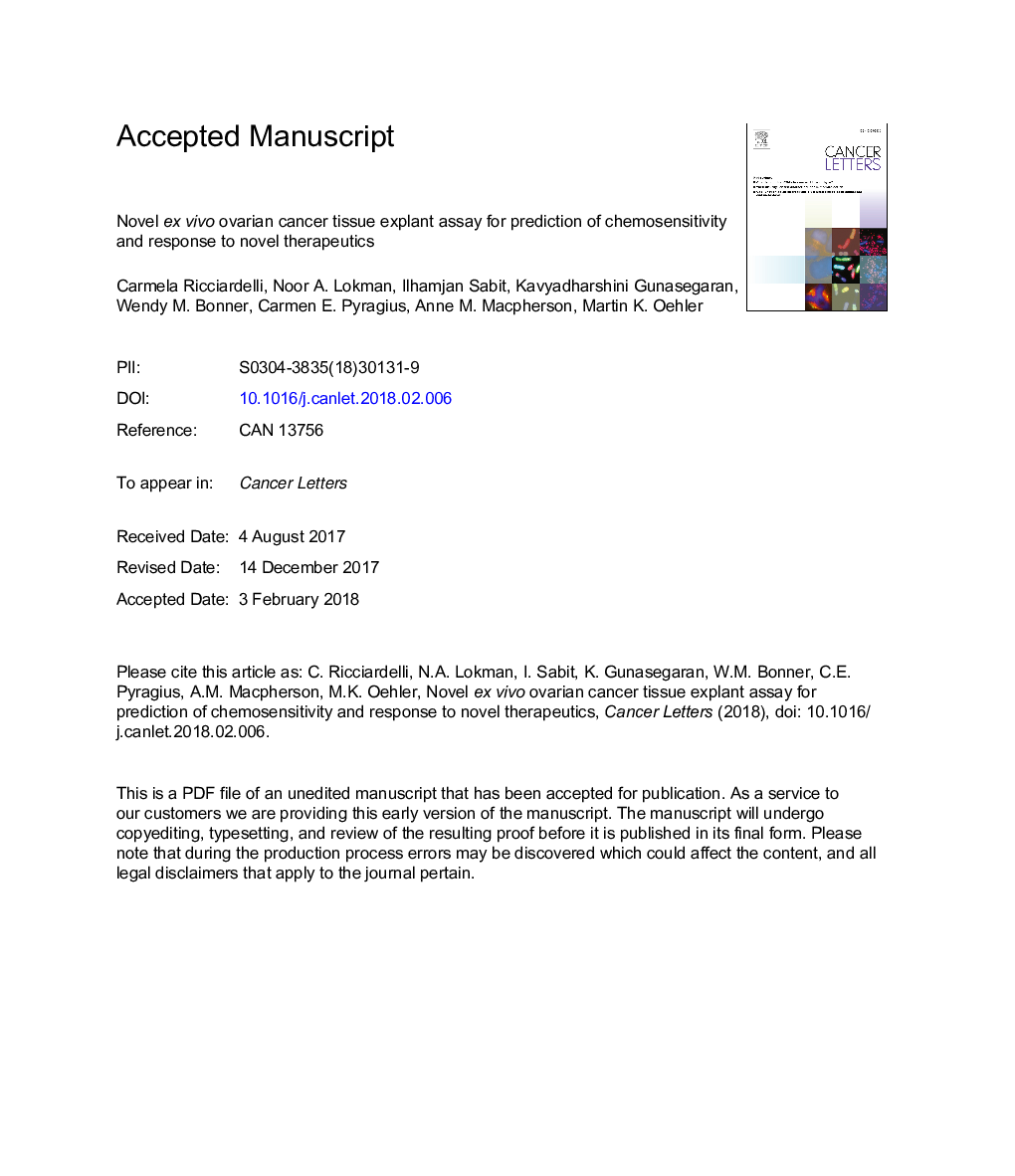| Article ID | Journal | Published Year | Pages | File Type |
|---|---|---|---|---|
| 8434603 | Cancer Letters | 2018 | 26 Pages |
Abstract
The majority of ovarian cancer patients present with advanced disease and despite aggressive treatment, prognosis remains poor. Response to first-line carboplatin-containing chemotherapy is usually good, however, recurrence rates and subsequent chemoresistance are very high and ultimately responsible for the fatal outcome of the disease. To improve treatment outcomes pre-clinical models that can predict individual patient response to 1st line chemotherapy and novel therapeutics are urgently required. In this study, we employed an ex vivo ovarian cancer tissue explant assay to assess response to carboplatin and an inhibitor of the extracellular matrix molecule, hyaluronan (4-methylubelliferone, 4-MU), shown to inhibit cancer metastasis. Cryopreserved ovarian cancer tissues were cultured on gelatine sponges for 48-120â¯h with increasing concentrations of carboplatin (0-400â¯Î¼M) or 4-MU (1â¯mM) alone or the combination of both drugs. Effects on apoptosis and proliferation were assessed by immunohistochemistry using antibodies to cleaved caspase 3 or Ki67, respectively. The ex vivo tissue explant assay maintained viable tumor cells in an intact tumor microenvironment similar to the in vivo situation over the 120â¯h culture period. Carboplatin treatment promoted apoptosis in chemosensitive (Pâ¯=â¯0.0047) but not chemoresistant cancer tissues. The combination of 4-MU (1â¯mM) and carboplatin (100â¯Î¼M) significantly increased apoptosis (Pâ¯=â¯0.0111) and reduced proliferation (Pâ¯=â¯0.0064) in chemoresistant tissues. Overall, our results show that the ex vivo explant assay is a robust and cost effective model to assess chemosensitivity and the effect of novel therapeutics in ovarian cancer.
Related Topics
Life Sciences
Biochemistry, Genetics and Molecular Biology
Cancer Research
Authors
Carmela Ricciardelli, Noor A. Lokman, Ilhamjan Sabit, Kavyadharshini Gunasegaran, Wendy M. Bonner, Carmen E. Pyragius, Anne M. Macpherson, Martin K. Oehler,
